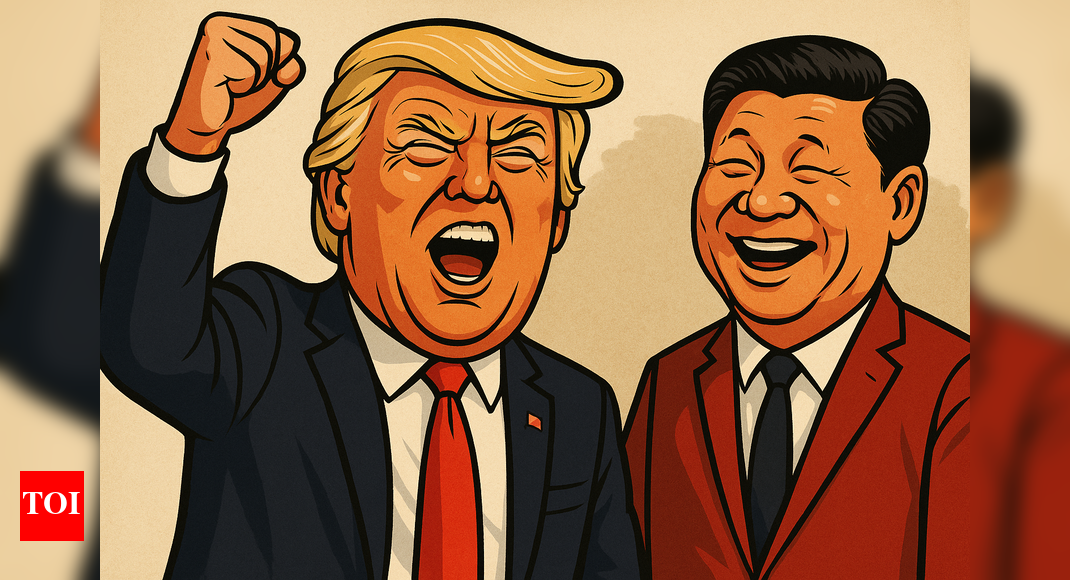China has a new and emerging rival to America’s Silicon Valley — and it is Liangzhu, a quiet suburb on the outskirts of Hangzhou. The city is one of China’s fastest-growing centers of artificial intelligence development. Describing a scene on a Saturday afternoon in the city, a report in New York Times said, “…dozens of people sat in the grass around a backyard stage where aspiring founders of tech startups talked about their ideas.” A former Facebook and Alibaba employee who hosted the event, Felix Tao told NYT, “People come here to explore their own possibilities.” According to The New York Times report, virtually every conversation at startup and corporate gatherings in this city circles back to artificial intelligence — the technology at the heart of China’s push to compete with the United States in the global tech arena and the one China and America are fighting for supremacy.
Hangzhou is home to Alibaba, DeepSeek and many other AI giants
Hangzhou has long been a magnet for talent and innovation, home to Chinese tech giants like Alibaba, NetEase, and surveillance technology company Hikvision. More recently, the city has given rise to DeepSeek, a fast-growing AI firm that captured international attention in January after unveiling a powerful open-source model it said cost a fraction of its Western equivalents.DeepSeek is one of what Chinese media now call the “six tigers of Hangzhou” — a group of AI and robotics startups making headlines at home and abroad. Game Science, another member of the cohort, produced Black Myth: Wukong, the first Chinese-made video game to achieve global blockbuster status. Robotics firm Unitree made a splash in January when its robot dogs performed a choreographed dance during the state broadcaster’s Spring Festival Gala.The AI surge in Hangzhou reportedly did not happen by accident. Over the past decade, provincial and local authorities have rolled out tax breaks and subsidies to attract tech startups, a strategy that has helped seed hundreds of companies. On weekends, investors and entrepreneurs fly in from Beijing, Shanghai, and Shenzhen to scout talent — and often end up in Tao’s backyard.Many of Liangzhu’s coders are alumni of Zhejiang University, one of China’s top engineering schools and the alma mater of DeepSeek’s founder. Their technical skills are in such high demand that Chinese media recently covered the defection of a core DeepSeek engineer to electronics giant Xiaomi as front-page news.Still, many engineers say they are biding their time, waiting for noncompete agreements with firms like ByteDance to expire before launching startups of their own.
Biggest challenge of Chinese companies — tough to attract foreign capital
Yet Hangzhou’s rise as a tech powerhouse has not come without complications. Several founders told The New York Times that the same government support that fueled their early growth now makes it harder to attract foreign capital. International investors are increasingly wary of Chinese tech firms, especially those with ties to the state. Some fear their companies could meet the same fate as ByteDance, the parent of TikTok, whose executives have faced tough scrutiny in the United States over national security concerns.The dilemma has left founders with limited options. “You either take government funding and stay focused on China, or raise enough on your own to open an office in Singapore or elsewhere,” one founder said, requesting anonymity to speak candidly. “Most people can’t afford the second route.”Adding to the uncertainty is the question of access to the chips that power advanced AI models. The U.S. government has imposed increasingly strict export controls on high-performance semiconductors, making it difficult for Chinese firms to buy processors from companies like Nvidia. In response, Chinese tech giants — including Huawei and Semiconductor Manufacturing International Corporation — are racing to build domestic alternatives.While Chinese-made chips have enabled some companies, such as ByteDance, to offer limited AI services locally, industry experts say it remains unclear whether those supplies can keep up with demand — or how long it will take for China to achieve true chip independence.

